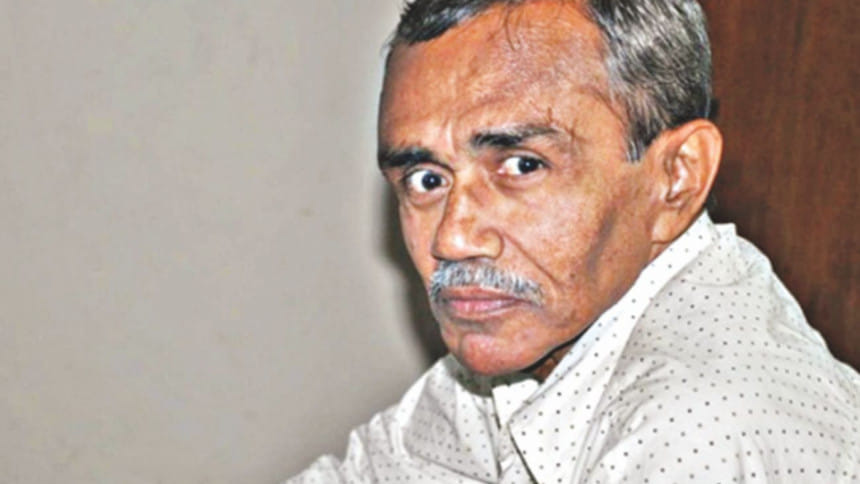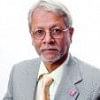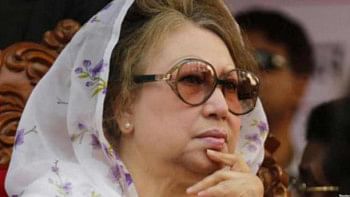A friendship to cherish

Abdul Qayyum was a unique person. While I tap this on my mobile sitting at a hospital in Essex, England, January 15, his Janaza could be taking place in Narayanganj. By the time I finish he would probably be resting in eternal peace. He would not like it. He would have expected me at his side. A lifetime of knowing each other has come to naught, as I had flown out of Dhaka the day before.
His little room in a big house in the 1980s was an exclusive getaway for some of us to spend a night on the weekends playing cards at the lowest stake imaginable. Dinners were deshi and sumptuous. We tiptoed out late next morning lest we annoy his Chacha (a business giant of the yesteryears) sleeping in the next room. Needless to say, we had to stifle our guffaws all night.
From driving a huge Mercedes in the late 1960s, his joint family's economic difficulties, due probably to the demise of jute, found him yet another small room when the family property was divided and subdivided. The only thing that did not change over time was the warmth of his friendship.
His could be the first cheerful wish on a birthday morning. His could be an unnecessary apology on an Eid afternoon for wishing us late. His decency would be to enquire about each member of our family by name when he rang every three to four months. That even if we had not called him over the past year. I did, last week. But, his phone was ominously off.
Abdul Qayyum was not physically mobile. From his boyhood, he suffered from a rare bone disease. It was severe enough to cut short his time at Residential Model School where I was his classmate in in grade IV in 1962—that's 55 years, brother. Being among the pioneers of the prestigious school in Dhaka's Mohammadpur, Abdul Qayyum was a resident of Jinnah House in the Junior Wing (Class I to V) and Fazlul Huq House in the Senior. His leg broke several times; once during compulsory games-time. He was left with a walking disability. His disarming smile never left him.
The name of Jinnah House was changed to Qudrat-i-Khuda House after Liberation. Abdul Qayyum held the memories of the 1971 War very close to his heart. After I was elected president of our school (college since 1968) Alumni (Old REMIANS Welfare Association) in 2008, my friend requested me over a dozen times over telephone (he was not that mobile, remember?) to build a memorial in the premises of Dhaka Residential Model College to carry a plaque with names of all REMIANS who participated in the glorious war. Each time I assured him. He used to say, "Do it while we are alive".
The world often mistakes such proposals as one of self-adulation, but Abdul Qayyum's proposition emanated from his deep admiration of the selfless sacrifices made by freedom fighters, perhaps because he could not contribute physically, disabled as he was from the mid-1960s.
As his family of uncles, cousins and nephews began to feel the cringe of the economic constraints, it fell upon Abdul Qayyum to manage the dwindling family finances and other domestic affairs, including the reduced fleet of vehicles. He was well respected for his integrity and managerial dexterity. But, by then the ship had admitted too much water. At one stage they had to sell off two large landed properties in Dhaka's Eskaton.
Within a couple of decades, a family of jute tycoons living in opulence was reduced to abjection. Abdul Qayyum never burdened his friends with tales of his difficulties, rather he gave the impression that the banks were about to resolve all the inadequacies of his extended family. He was a bachelor, not by choice but by the compulsion of his mobility impairment.
He landed on a bed at Shaheed Suhrawardy Medical College & Hospital, Sher-e-Bangla Nagar, about a decade and a half ago. He gave up smoking after being admonished by friends and family. A couple of years ago when I saw him with a cigarette and a broad smile, he volunteered to justify, "I didn't touch it for ten years, but I knew if ever I had one, I would not be able to stop". He did not.
Never short of confidence, despite being unable to keep up with the worldly progress of his friends and others around him. He was well respected in his neighbourhood.
Never a bother to his friends, despite his resourcefulness having shrunk substantially within one generation. He lived in aristocracy, in wealth and in poverty.
Never to be left out of an intellectual conversation despite being unable to continue serious education beyond school. He was self-taught and a well-informed person. Excellent in English, he would love me saying this, that Abdul Quaiyum always "cut his coat according to his cloth". He had to.
Dr Nizamuddin Ahmed is a practising architect, a Commonwealth Scholar and a Fellow, a Baden-Powell Fellow Scout Leader, and a Major Donor Rotarian.





Comments